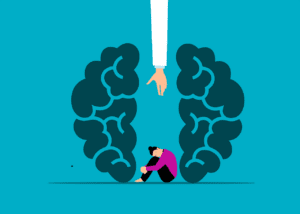 Brian Hall is a world-renowned expert in global mental health, and he’s also the director of the Center for Global Health Equity and a professor of global public health at NYU Shanghai. According to Hall, the mission of the Center for Global Health Equity is to develop evidence around interventions that improve public mental health services and, in particular, respond to populations who experience adversities, including complex emergencies and disasters.
Brian Hall is a world-renowned expert in global mental health, and he’s also the director of the Center for Global Health Equity and a professor of global public health at NYU Shanghai. According to Hall, the mission of the Center for Global Health Equity is to develop evidence around interventions that improve public mental health services and, in particular, respond to populations who experience adversities, including complex emergencies and disasters.
How does it fulfill its mission? “NYU Shanghai has given its full support to develop a leading center in global public health, and that commitment has already led to the center’s publication of more than 30 papers within 2022,” Hall says. Among its admirable output of work this year is a study on China’s existing literature in English and Chinese on mental health and psychological support (MHPSS) during calamities in the country from 2000 to 2021. The paper, “Mental health and psychosocial interventions to limit the adverse psychological effects of disasters and emergencies in China: A scoping review,” aims to understand the country’s MHPSS intervention research, policies for disasters and emergencies, and the efficacy of these interventions.
Hall’s research reveals that China’s experience in postcrisis psychosocial support was limited prior to the 2008 Sichuan earthquake. Since then, China has rapidly mobilized trained professionals to provide psychiatric and psychosocial services in affected communities, as demonstrated in the responses to the 2008 earthquake in the Sichuan Province and the COVID-19 outbreak in the Hubei Province in early 2020. In spite of these improvements, however, the study shows that critical gaps remain. For example, a lack of integration of MHPSS responses into the current national and local emergency response system, missing supervision and rigorous evaluation of the effectiveness of mental health services, and regional imbalance in the quality and coverage of these services persist.
“It is critical to understand how China responds to disasters as this sets the stage for future development in the field domestically and provides the world a key vantage point to learn from successful implementation of MHPSS in our country,” says Hall. As senior author of the research and a commissioner of the Lancet Commission on Mental Health in China, Hall worked closely with notable scholars from Shanghai Mental Health Center, Sichuan University’s Institute for Disaster Management and Reconstruction, Fudan University, Shanghai Jiao Tong University, and Columbia University for over a year to complete the project. The paper is part of the preparatory work for the Lancet Commission of Mental Health in China, cochaired by Central South University professor Xiao Shuiyuan and Columbia University professor Michael Phillips. The paper was recently published in The Lancet Regional Health–Western Pacific, a leading journal dedicated to advancing clinical practices and health policies in the Western Pacific region.
Repurposed with permission from NYU Shanghai News and Publications